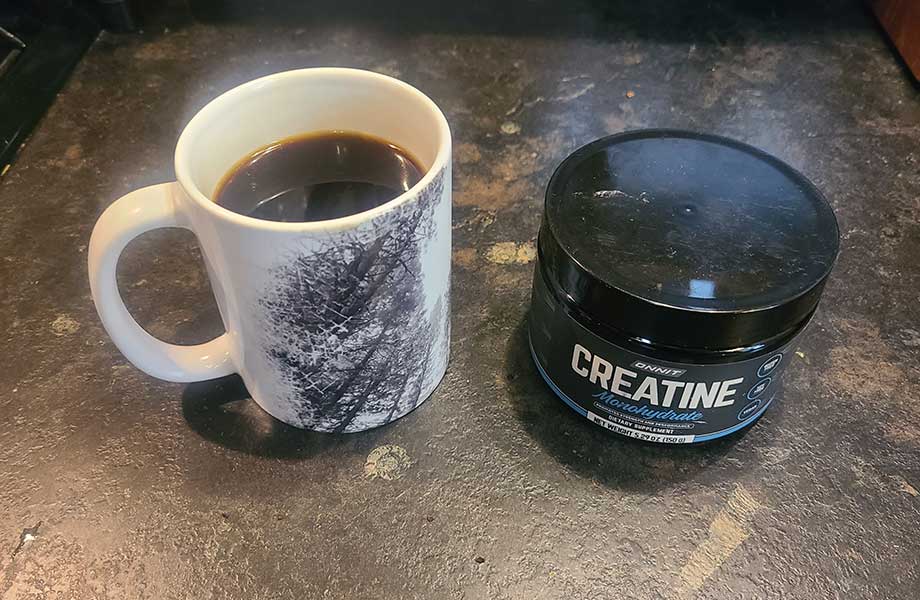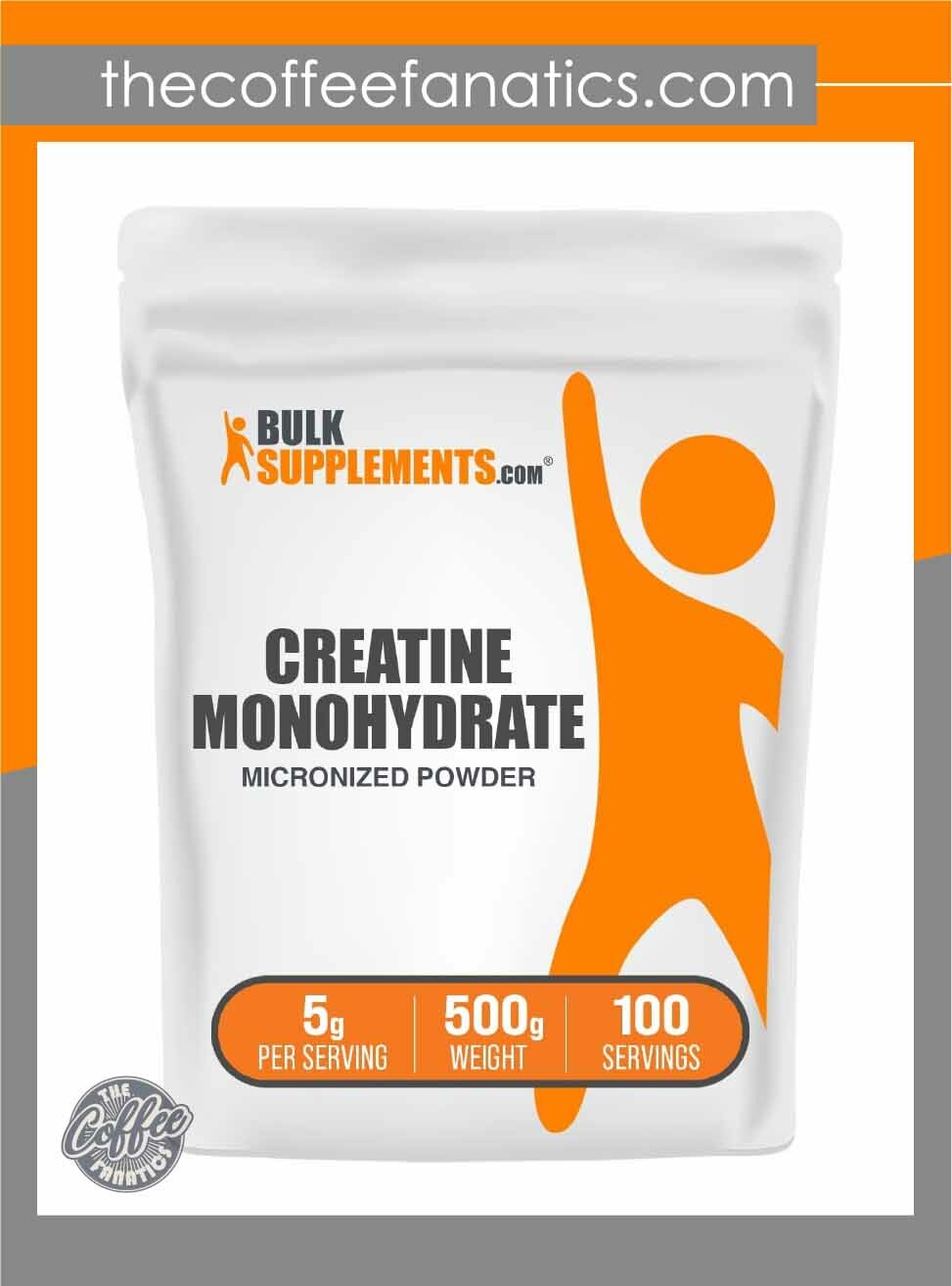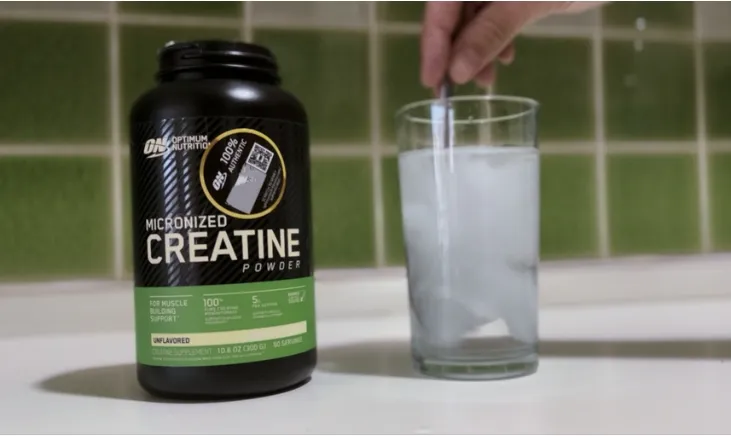Can I Mix Creatine In Coffee

Imagine this: the aroma of freshly brewed coffee fills your kitchen, promising a jumpstart to your day. You're reaching for your usual scoop of creatine, a supplement known to boost your workout performance, and a thought crosses your mind – could these two powerhouses combine forces in your morning mug?
The question of whether you can mix creatine in coffee is a common one, especially among fitness enthusiasts looking for convenient ways to integrate supplements into their daily routine. While seemingly straightforward, the answer involves considering factors like creatine stability, temperature, and individual preferences, and it's not as simple as a yes or no.
The Rise of Creatine: A Fitness Staple
Creatine has become a cornerstone supplement in the fitness world, lauded for its ability to enhance muscle strength, power, and size. It works by increasing the availability of ATP (adenosine triphosphate), the primary energy currency of cells, especially during high-intensity exercise.
This allows for more sustained effort and quicker recovery, making it a favorite among athletes and gym-goers alike. Numerous studies support its effectiveness and safety, contributing to its widespread adoption.
Understanding Creatine: Types and Stability
Creatine monohydrate is the most researched and commonly used form. Other forms, such as creatine ethyl ester and creatine hydrochloride (HCL), exist, but haven't demonstrated superior benefits in studies. Creatine's stability is key when considering how to consume it.
It's generally stable at room temperature and dissolves best in warm liquids. However, prolonged exposure to high heat or acidic environments can degrade it into creatinine, a waste product with no ergogenic benefits.
Coffee's Acidity and Temperature: A Potential Challenge?
Coffee, with its inherent acidity and typically high serving temperature, raises some concerns about creatine degradation. The pH of coffee usually ranges from 5 to 6, making it mildly acidic.
While not drastically acidic, prolonged exposure to heat in this environment could potentially break down some of the creatine. The extent of this degradation depends on factors like the coffee's acidity, temperature, and the duration of exposure.
The Verdict: Can You Mix Creatine in Coffee?
Technically, you *can* mix creatine in coffee, but there are a few caveats. The primary concern is the potential for degradation due to heat and acidity, although research suggests it might not be as significant as once thought.
Some studies indicate that creatine remains relatively stable in warm liquids for short periods. However, it's still advisable to minimize the exposure time and avoid letting the mixture sit for extended durations.
Practical Considerations and Best Practices
If you choose to mix creatine in coffee, here are some practical considerations: Firstly, add the creatine to your coffee right before drinking it. This minimizes the time it spends exposed to heat and acidity.
Stir well to ensure it dissolves completely. Some users report a slightly gritty texture when creatine isn't fully dissolved. Secondly, avoid adding creatine to extremely hot coffee.
Allow the coffee to cool slightly before mixing in the supplement. Thirdly, consider using a micronized form of creatine monohydrate. This finer powder dissolves more easily and may reduce any perceived grittiness.
Alternatives to Coffee: Exploring Other Options
If you're concerned about potential creatine degradation or simply dislike the taste, plenty of other options exist. Water remains the most common and effective way to consume creatine. It's neutral in pH and readily available.
Juice is another good option, especially fruit juices with natural sugars, which may aid in creatine absorption. Protein shakes are a convenient way to combine creatine with other post-workout nutrients. They also help to mask the taste of creatine, if that’s a concern.
Taste and Texture: Addressing User Experience
Some individuals find that creatine alters the taste and texture of their coffee. Creatine itself is relatively tasteless, but when mixed with liquids, it can sometimes impart a slightly chalky or gritty sensation. This is especially true if the creatine isn't fully dissolved.
Using a micronized form or ensuring thorough stirring can minimize these effects. If the taste is still a concern, consider masking it with other flavors like milk, sweeteners, or flavored creamers.
The Importance of Individual Experimentation
Ultimately, whether or not you choose to mix creatine in coffee is a matter of personal preference and tolerance. Some individuals may experience no issues and find it a convenient way to consume their daily dose. Others may prefer alternative methods due to taste, texture, or concerns about degradation.
It's essential to listen to your body and experiment to find what works best for you. If you have any underlying health conditions or concerns, it's always a good idea to consult with a healthcare professional or registered dietitian before making significant changes to your supplement routine.
Safety and Dosage: Staying Informed
Regardless of how you choose to consume creatine, it's crucial to adhere to recommended dosage guidelines. The standard recommended dose of creatine monohydrate is 3-5 grams per day. This dose is generally considered safe for most individuals.
It's also important to stay hydrated, as creatine draws water into muscle cells. While creatine is generally safe, some individuals may experience mild side effects such as stomach upset or bloating. If you experience any adverse effects, discontinue use and consult with a healthcare professional.
Long-Term Effects: A Continued Area of Study
Creatine's long-term effects have been extensively studied, with research consistently showing its safety and efficacy when used as directed. However, ongoing research continues to explore potential benefits beyond athletic performance, such as cognitive function and age-related muscle loss.
Staying informed about the latest research can help you make informed decisions about creatine supplementation. Reputable sources, such as scientific journals and evidence-based websites, can provide valuable insights into the benefits and potential risks of creatine use.
Conclusion: Balancing Convenience with Knowledge
Mixing creatine in coffee is possible, but it's a choice that requires a balanced understanding of creatine's properties and coffee's impact. While the convenience is appealing, prioritizing creatine stability and taste preferences is essential.
By being informed and attentive, you can integrate creatine into your routine in a way that supports your fitness goals without compromising your overall well-being. Ultimately, the best approach is the one that aligns with your individual needs, preferences, and health considerations. Remember, making informed choices is the key to unlocking the full potential of any supplement.


















